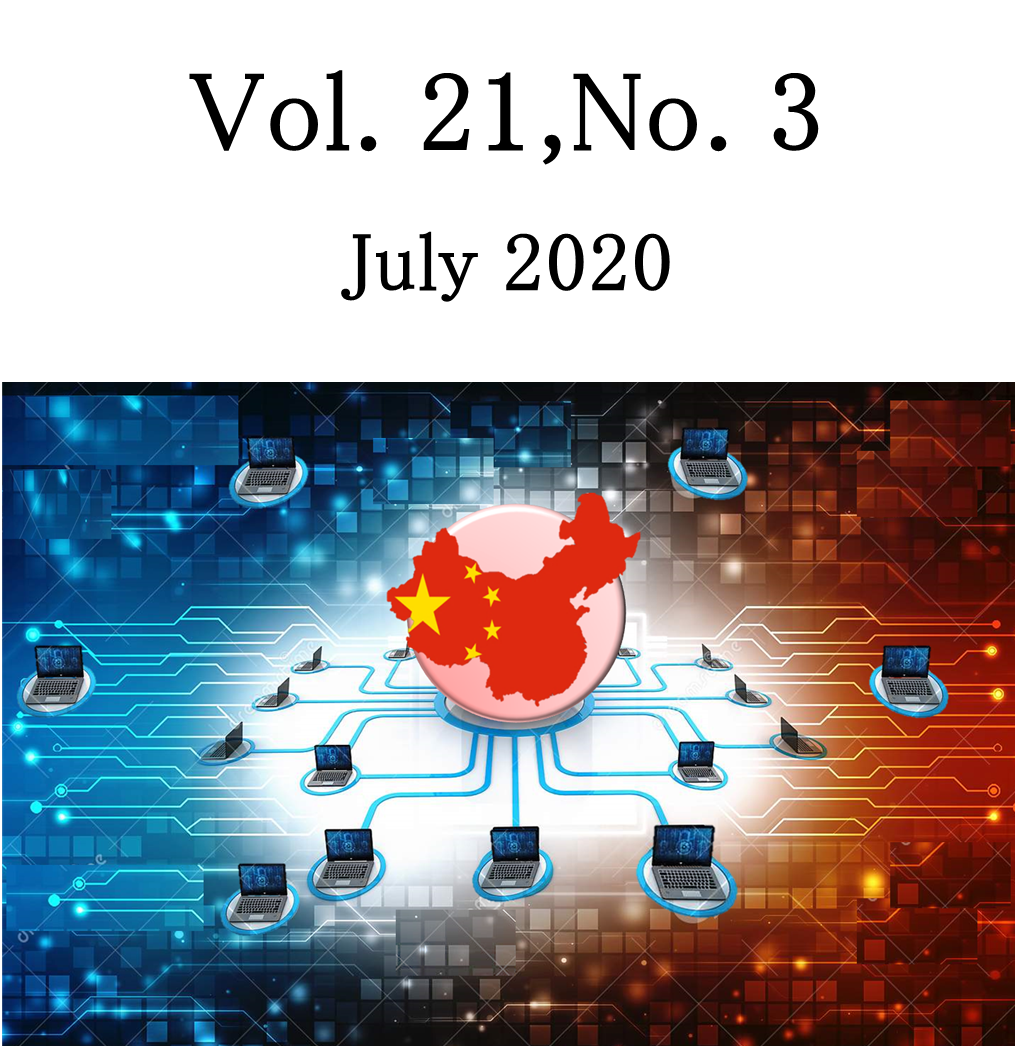PRC’s Cybersecurity Regulations and Its Strategy Implication
Taiwan Social Sciences Citation Index(TSSCI)
Prospect Quarterly Vol.21 No.3 (July 2020)
PRC’s Cybersecurity Regulations and Its Strategy Implication
Source: Dreamtimes, < https://cn.dreamstime.com/%E8%AE%A1%E7%AE%97%E6%9C%BA%E7%BD%91%E7%BB%9C%EF%BC%8C%E4%BA%92%E8%81%94%E7%BD%91%E9%80%9A%E4%BF%A1%E5%9C%A8%E6%8A%80%E6%9C%AF%E8%83%8C%E6%99%AF%E4%B8%AD-d%E7%BF%BB%E8%AF%91-image127354210>.
PRC’s Cybersecurity Regulations and Its Strategy Implication
Ph. D., Graduate Institute of National Development and China Studies,
Chinese Culture University
Professor, Graduate Institute of National Development and China Studies,
Chinese Culture University
To thoroughly understand China’s cybersecurity policy and its strategic implication, a total of 103 Chinese “cybersecurity regulations” and “cybersecurity news reports” from central and local governments since 2001 was collected in this study and were categorized and positioned to form a pattern of China’s “cybersecurity strategy.” Through textual analysis and a qualitative research method (NVivo), as well as analyzing significant legal cases, the study found that although the regulation text presents a “Control and Service Orientation” as its cybersecurity type, the trials in fact did not comply with the law. This finding deconstructs the substantive meanings and objectives of China’s cybersecurity regulations as is openly claimed and conforms to a perspective of dominating international network rules and pursuing national security interests through China’s cybersecurity strategy.
Keywords:China’s Cybersecurity Regulation, China’s Cybersecurity Strategy, Cybersecurity Law, Cybersecurity Control, Cybersecurity Sovereignty
China’s Sharp Power Penetration in Australia, and the Australian Responses
Ph. D., Graduate Institute of East Asian Studies,
National Chengchi University
Much attention has been paid to the notion of “sharp power” in recent years. It has become, to some extent, replaced the “China threat theory” during the 1990s. Foreign Affairs and The Economist have published articles warning against China’s sharp power; the U.S. Congressional Research Service, Australia, New Zealand and Germany and other democracies have also pointed out that China has induced local politicians or officials to voice with the interests of Beijing through political donations and free travel. Different from Western “soft power” distributing its attractiveness outside, sharp power is destroying basic human rights and other democratic values by manipulating, buying and other means. This study explores the ways how China’s sharp power penetrates into Australian society and its impact, and the resistance of the Australian government and Australian people.
Keywords: Sharp Power, China, Australia, Confucius Institute, Global Propaganda
The Geopolitical Imagination of “Me and My Motherland”: A Critical Geopolitics Perspective
Ph.D., Graduate Institute of International Affairs and Strategic Studies,
Tamkang University
Associate Professor, Graduate Institute of Chinese Military Affairs Studies,
National Defense University
This article uses the theory of “critical geopolitics” or “postmodern geopolitics” to analyze the official movies of “Me and My Motherland,” which was released on China’s National Day. The purpose is to explore how the film constitutes a geopolitical storyline, and how it forms a cognitive map of Mainland China in the popular imagination and forms a specific geopolitical imagining, which further demonstrates a national identity. Without anyone as the film’s main character, the study found that the film’s storyline is closer to the popular imagination and national identity. Furthermore, it tallies with the geopolitical storyline of Xi Jinping’s “Chinese Dream”.
Keywords:Critical Geopolitics, Popular Geopolitics, Geopolitical Imagination, Geopolitical Discourse, Geopolitical Storyline


